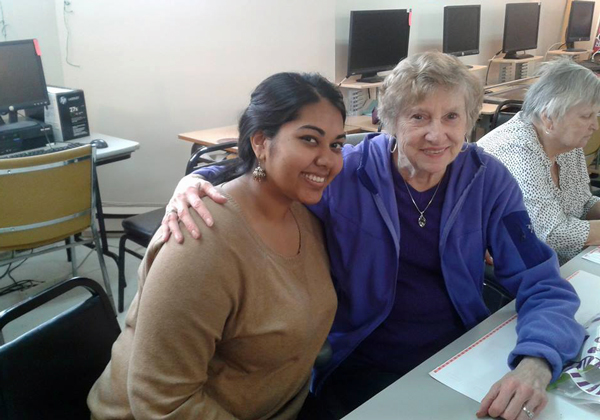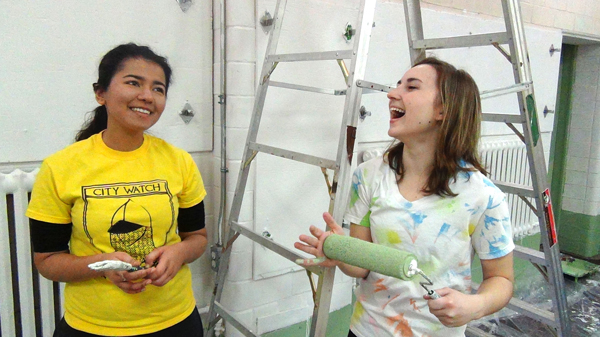
By Neale McDevitt
While thousands of North American students spent March Break basking in the sun in warm southern climes, Andrea Terceros, spent much of her week wandering around – and sometimes getting lost in – Montreal’s icy streets.
But the first-year biology student’s travels weren’t aimless – she was armed with a backpack stocked with food and was helping Santropol Roulant deliver much-needed meals to Montrealers with limited mobility, mostly seniors. “Monday it was really cold and we walked for about three hours and a half. We got lost but we managed to deliver all the meals. Seeing the clients’ smiles made all the effort worth it,” said Terceros. “In fact, we were told by the Santropol staff members that we might be the only persons some of our clients [mostly seniors] would see during the entire day. Having that in mind, the cold and long walks didn’t matter.”
Terceros was participating in Alternative Spring Break (ASB), an initiative organized by McGill’s Social Equity and Diversity Education Office SEDE in collaboration with Campus Life & Engagement. Running from March 2-6, ASB provided McGill students with the chance to engage with the Montreal community through five days of volunteering, learning and interacting with people outside the University bubble.

According to Veronica Amberg, SEDE Associate Director, ASB 2015 was a huge success. “This is the second year we ran ASB and we had 57 participants – up over six times from last year’s nine participants,” she said. “The program has expanded to include volunteer placements in eleven different organizations across Montreal.”
This year, students also could earn a credit for participating in ASB. In partnership with McGill’s School of Continuing Studies’ Personal and Cultural Enrichment Program, a one-credit course is offered – called Topics in Volunteerism and Community Development – which complements the service learning that occur throughout the ASB experience.
Of course, credits are appreciated, but Amberg says the real goal is to “immerse students in social justice topics by working with community groups and organizations.”
For Terceros, the ASB experience not only opened her eyes to the challenges faced by many seniors, it has inspired her to help even more. “I definitely want to continue volunteering but in a more direct aspect,” she says. “I want to join a program where I can participate organizing and helping carrying out various events for seniors: such as a reading club, a board games evening, arts and crafts lessons, among others. I want to work more closely with seniors in order to integrate them into the community and put an end to the isolation they face.
“I highly encourage people to volunteer, not only students but also the general public,” continues Terceros. “Volunteering is not only beneficial to the community, it is also a reciprocal learning experience. By giving your time, you will witness the realities of various social groups and help create change in their lives, no matter how small your contribution. However, the change also occurs in your life – you become more patient, open minded, sympathetic and conscious.”
